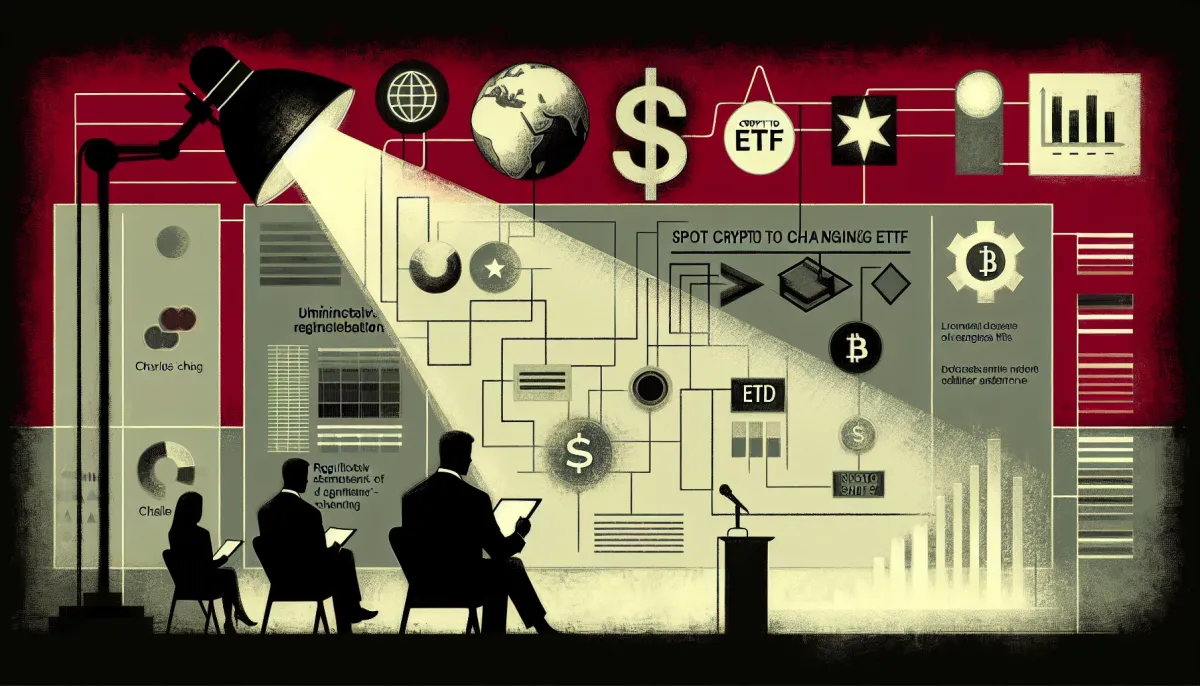Charles Schwab, a major player in finance, manages over $9.9 trillion in assets. Now, they’re looking to enter the spot crypto ETF market. But there’s a catch: they need clear regulations in the U.S. Incoming CEO Rick Wurster shared this during a recent interview with Bloomberg Radio. He’ll take the reins in January and mentioned that regulatory changes might come under President-elect Donald Trump.
Schwab has been exploring crypto through ETFs and futures. Their Crypto Thematic ETF (STCE) targets companies involved in cryptocurrency mining and trading. However, it doesn’t invest directly in digital assets. This shift towards direct trading shows Schwab’s response to growing demand from both retail and institutional investors for crypto products.
Wurster stated, “We will get into spot crypto when the regulatory environment changes.” This reflects Schwab’s careful yet ambitious strategy. In October, internal surveys showed strong client interest. Almost half of the respondents said they plan to invest in crypto-related ETFs within the next year. This caught the attention of ETF experts Eric Balchunas and Nate Geraci.
The hope for clearer regulations comes from Trump’s campaign promises. He talked about creating a Bitcoin reserve and protecting crypto mining. A key part of his platform was the promise to remove SEC Chair Gary Gensler.
In a surprise announcement, Gensler confirmed he would resign by January 20, 2025. In his farewell speech, he defended his record but acknowledged that crypto regulation is still a work in progress. He emphasized that changing the SEC’s approach to digital assets is essential for maintaining investor trust.
Experts predict a significant shift in U.S. regulations under Trump. His policies aim to align the U.S. with global crypto hubs, encouraging innovation while addressing security concerns. Analysts believe these changes could attract more institutional players like Schwab, positioning the U.S. as a leader in the crypto space.
Wurster expressed optimism about these developments. He believes that clearer regulations will allow Schwab to offer a wider range of crypto products. Although he hasn’t personally invested in crypto, he recognizes its appeal, saying, “Crypto has certainly caught many’s attention, and they’ve made a lot of money doing it. I have not bought crypto, and now I feel silly.”
Interest in spot crypto offerings is also growing. Matthew Sigel, head of digital assets research at VanEck, revealed that a crypto asset manager recently approached Schwab for a potential partnership. This shows the industry’s eagerness to collaborate with established financial institutions.
This trend aligns with traditional finance embracing crypto. Schwab’s entry into the spot market would be a significant milestone for both the firm and the broader acceptance of digital assets.
However, Schwab faces challenges in a competitive landscape. Platforms like Robinhood have gained traction among retail investors by offering seamless crypto trading experiences. Schwab will need to stand out through strong offerings and the trust it has built over the years.
Regulatory uncertainties still linger. While Trump’s administration promises a more supportive environment, the complexities of crypto regulation in the U.S. may take time to resolve. Schwab’s cautious approach acknowledges these challenges, ensuring its entry into the crypto market aligns with long-term client interests.

